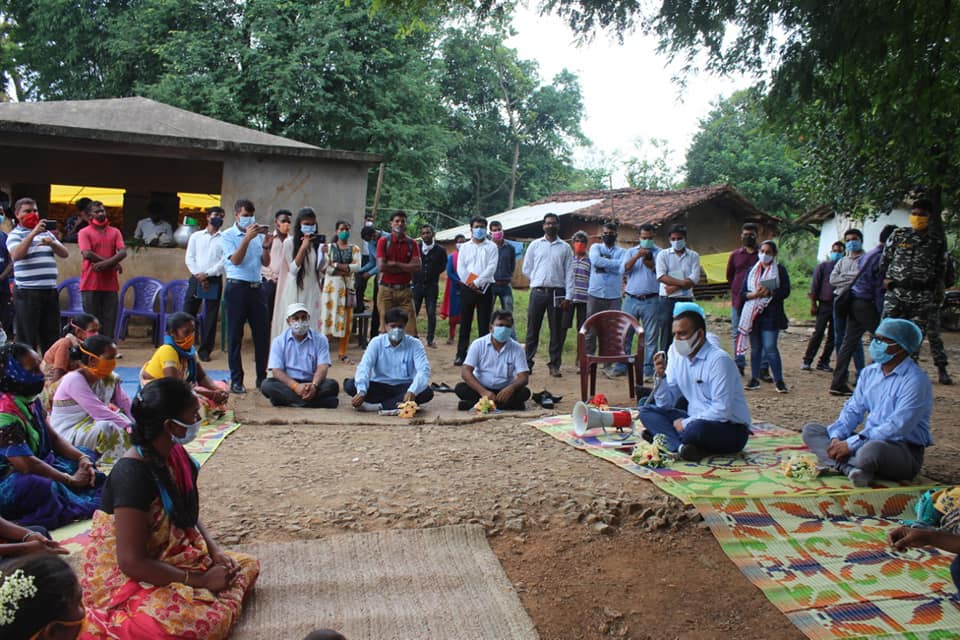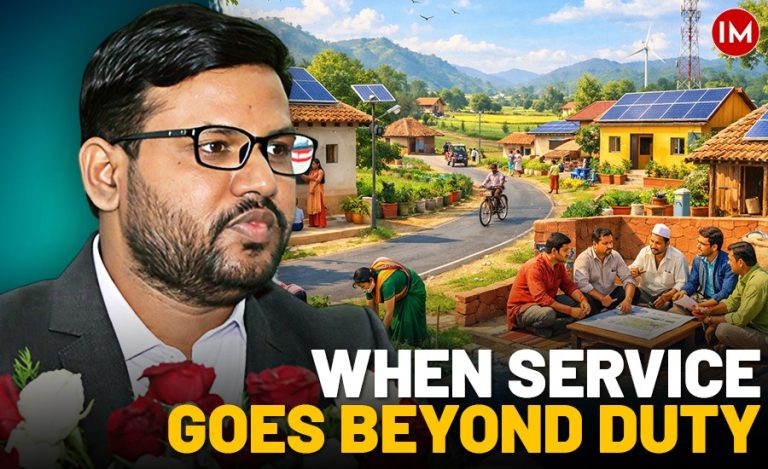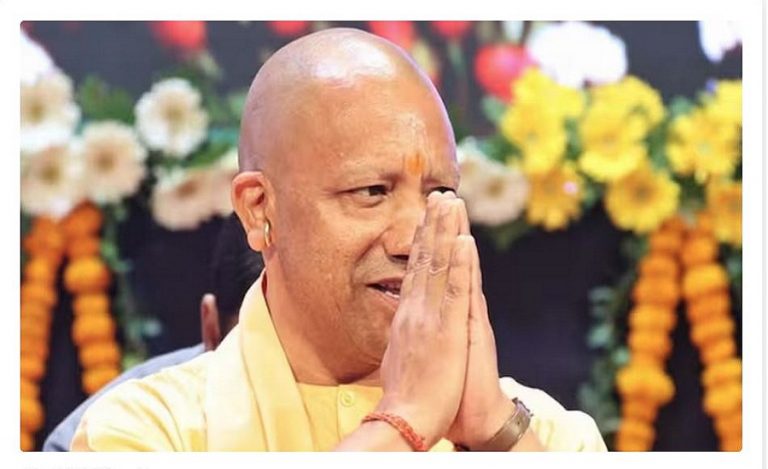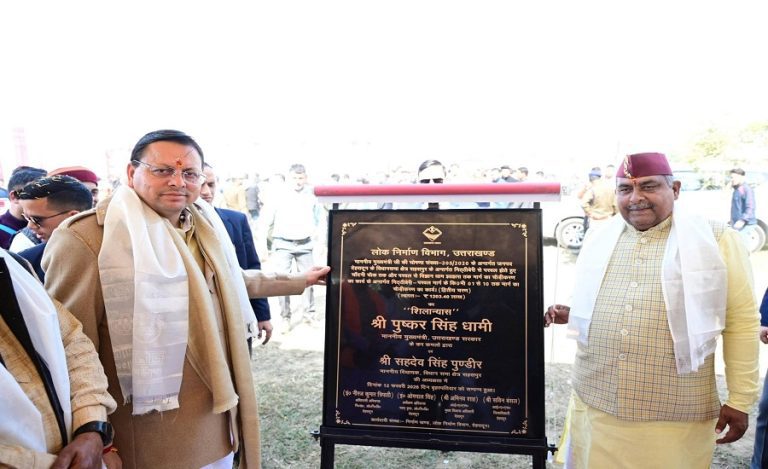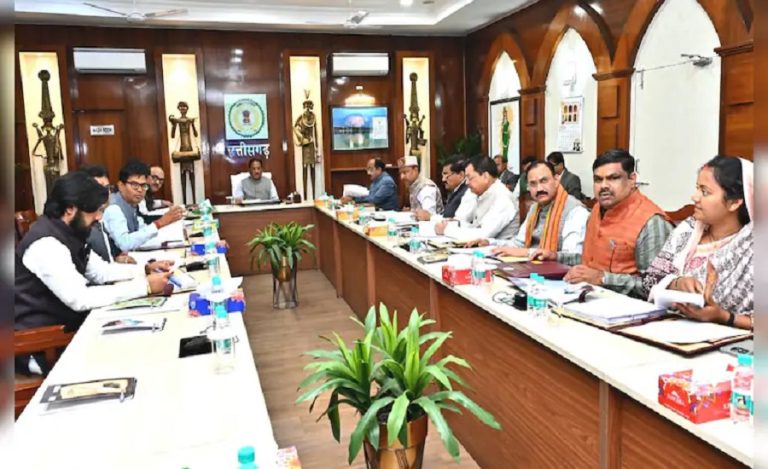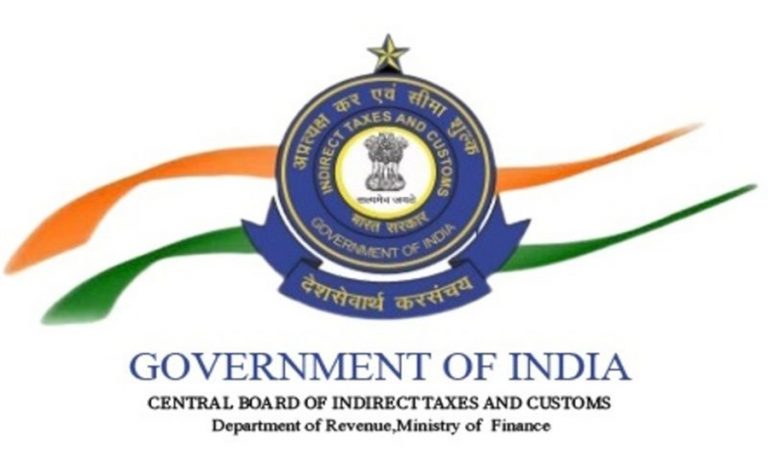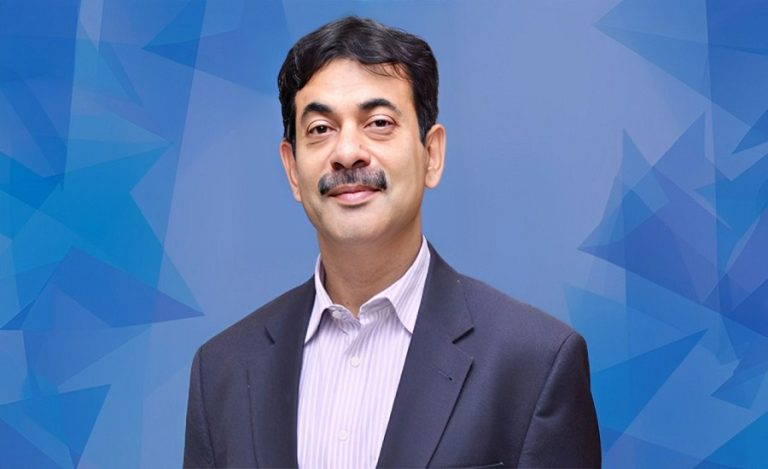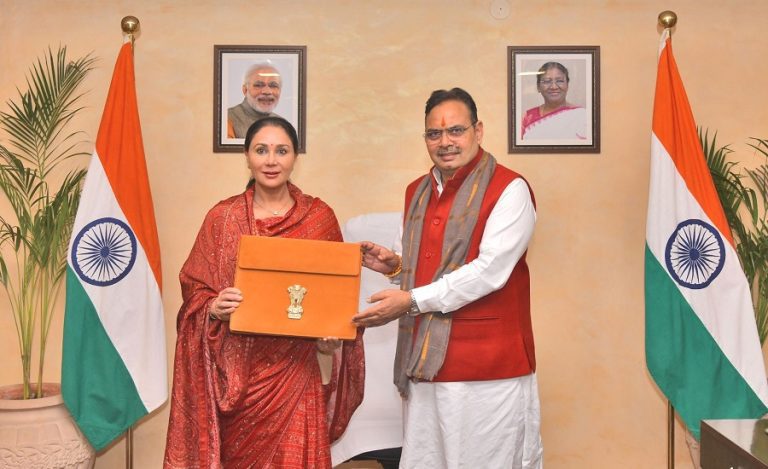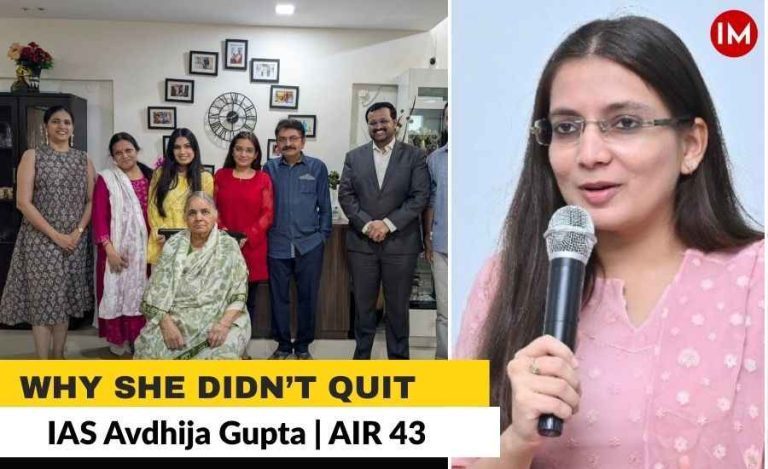India is an agrarian economy where the major part of employment is generated from Agriculture. According to IBEF, around 58% population’s livelihood in India is dependent on agriculture. However, they only contribute around 17-18 % share in the Gross Domestic Product (GDP).
Although generating major employment opportunities for others through agriculture activities, the farmers themselves lack behind in proper education and awareness of the right technologies that can overcome the problems they face during farming activities.
Take Jharkhand, a state where agriculture is the backbone of 80% of the rural population. Still, about 92% of the cultivatable area is left unirrigated. This because of a lack of inadequate storage facilities and low irrigation efficiency, despite the state having good rainfall.
INTRODUCING WATER CONSERVATION TECHNIQUE ‘BORI BANDH PROJECT’
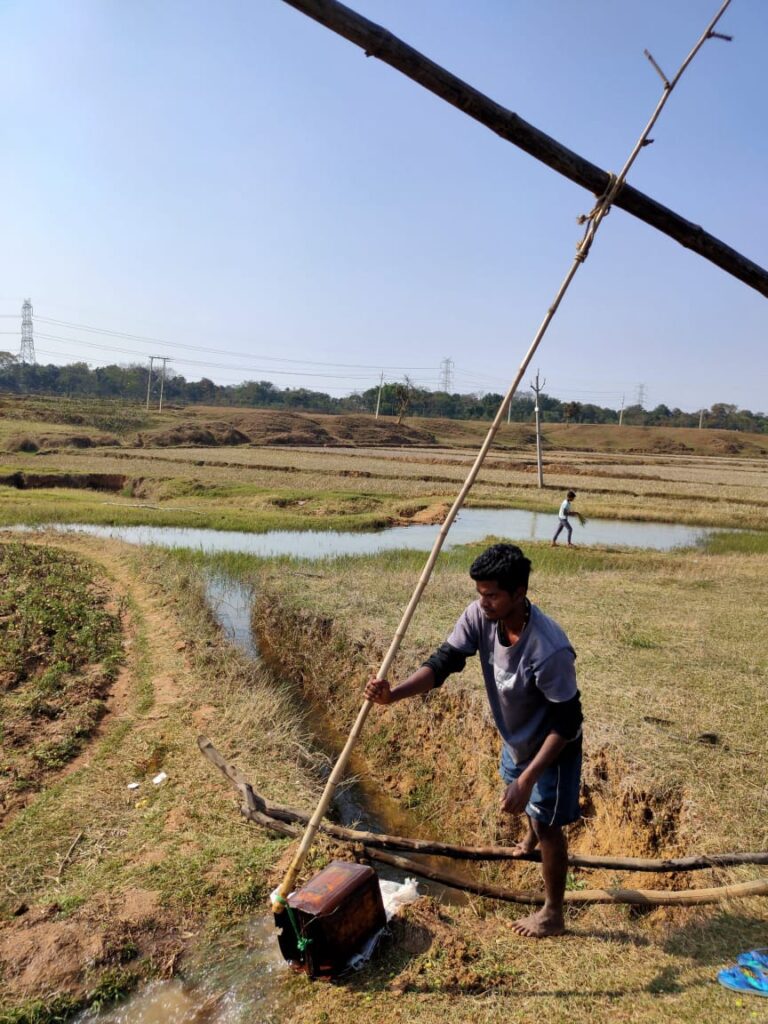
In 2019, a wonderful initiative of the ‘Bori Bandh Project’ was taken for water conservation in the remote area of Khunti in Jharkhand, by the former Deputy Commissioner (DC) Mr. Suraj Kumar. As of now, the project has benefited around 8,000 farmers.
The project is now continued by the current DC of Khunti, Mr Shashi Ranjan.
The ‘Bori Bandh Project’ has turned out to be an excellent cost-effective technique of retaining water by making check-dams all over the district. This is done with the use of sand and mud-filled sacks. This technique is mostly used before the monsoon season when farmers face the problem of adequate water supply for irrigation. It is a farmer intensive project and requires participation from local people, and mainly the tribal people belonging to the Munda community.

Mr. Shashi Ranjan, while speaking with Indian Masterminds, explained the problems which the farmers faced, as well as the solution initiated by his predecessor.
Said Mr. Ranjan, “Khunti is a remote plateau area where the socio-economic condition is very poor. The farmers are dependent on the cultivation of Kharif crops every year, mostly rice, and they never initiated Rabi crops. This was because the water, though available in local streams, could not reach the area of their cultivation. As we all know, the Rabi crop requires a lot of water. But we soon realised that hence the `Bori Bandh’ project was the most suitable and cost-effective technique that solved the major problem of farmers in the area.”

IMPLEMENTING THE PROJECT AND IMPROVING FARMING ACTIVITIES’
This cost-effective project had as an initial investment sacks, purchased at a nominal rate of Re 1 per piece. The measure also contributing to waste management, since recycled plastic bags were mainly used as sacks.
Mr. Shashi Ranjan told Indian Masterminds, “In Jharkhand farmers mostly irrigate the land which falls in a radius of half a kilometer or one acre from a well so that there is no scarcity of water. Outside the radius, they do not risk in irrigation activities as there is less probability of water the fields properly. But the check dams and related measures changed the situation. Now there was no shortage of water and the farmers could cultivate in much bigger areas.’’

Apart from the involvement of farmers, the administration also reached out to the ground level and made it a community mobilization initiative. Mr. Shashi Ranjan, while discussing about the involvement of the communities, said that “The NGO `Sewa Welfare Society’ and teams of Assistant Technology Managers and Block Technology Managers helped us in the process of reaching out to the local people. The teams used to conduct `Krishi Sangostis’ (village meetings) in various blocks and panchayats, educating people about the benefits of the project. This helped in the involvement and contribution of local people through `shramdaan’ (i.e. participation of human resources through labour).”

“We also hired a local NGO whose expertise it was to communicate with the people of ‘Munda Pradhan Society’, who speak mainly in the Mundari language. We were not fluent in this language, and the step helped us a lot in spreading awareness about the people,’’ Mr. Ranjan said.
IMPACT, ACHIEVEMENTS, AND VISION OF THE PROJECT

The project, said Mr. Ranjan, was not only a success for the administration but also all the people involved in it at different levels. Mr. Shashi Ranjan said, “First of all it helped in the mobilization of people as apart from farmers, local people are also actively taking part in the farming activities.
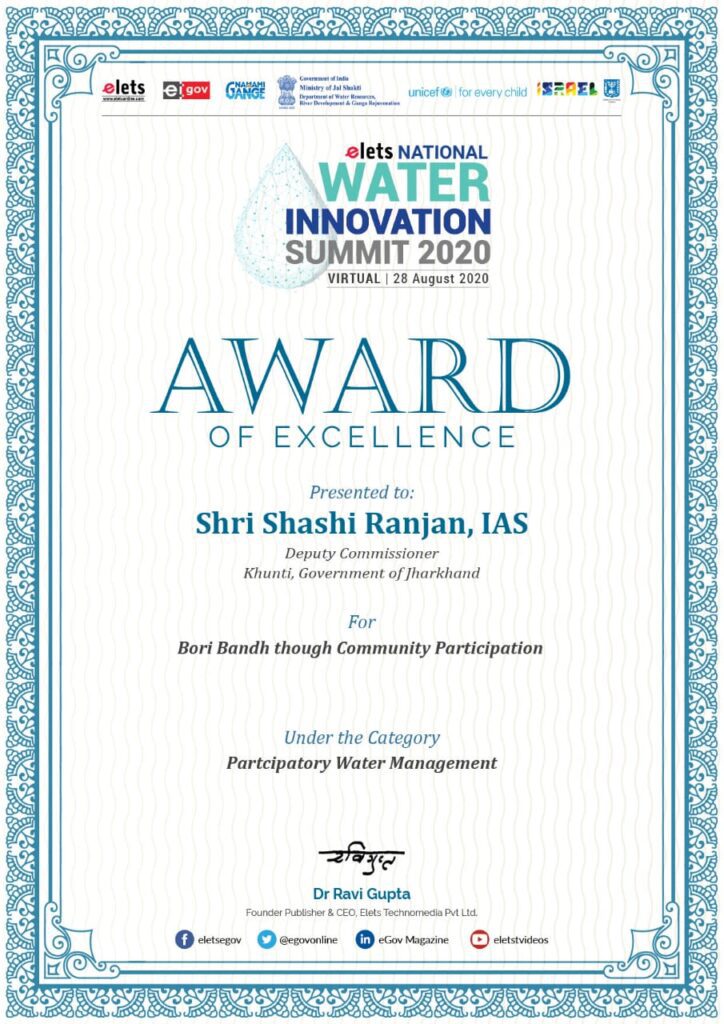
Secondly, there is an increase in the farming activities as earlier, farmers were only growing one type of crop. Now they grow several types, and this has led to an increase in the annual income of the farmers. Being a Naxal-hit area, local community people were earlier engaged in the cultivation of opium, which has now shifted to growing various other crops. Also, this has brought a change in the consumption of food culture for these communities, as they are consuming various vegetables and crops after cultivating them.”
The success of the `Bori Bandh’ project has led to ripple effects. The administration now is planning to launch food-processing units with the help of various village organisations and related outlets, so as to engage the local population in large numbers. It is hoped that these steps would have a perceptible change in the rural economy of the region.
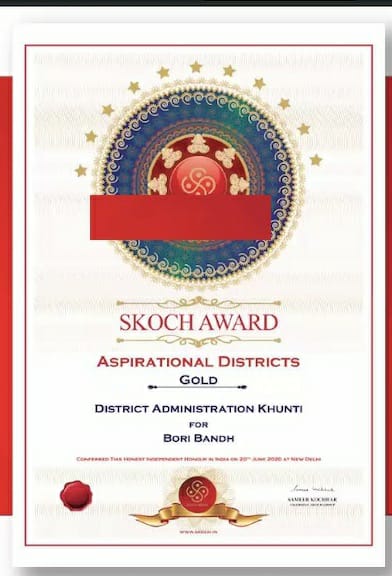
One year after its launch, the project has received awards and has been it has been appreciated by many. Among this is the award for excellence from the Union Jal Shakti Ministry. “Mr. UP Singh, Secretary, Department of Water Resources, RD & GR presented us with the award and also plans to visit the district soon for the achievement of the project all over the country”, said Mr. Shashi Ranjan.
In July 2020, the district was also awarded the prestigious Skoch award for its efforts in water conservation and management. Among other recognitions, it has received the award for excellence under the category ‘Participatory Water Management’ from Elets National Water Innovation Summit 2020. The award was presented to Mr. Shashi Ranjan, who has already expanded the project to three blocks and 30 panchayats and is now aiming to extend it still further.

